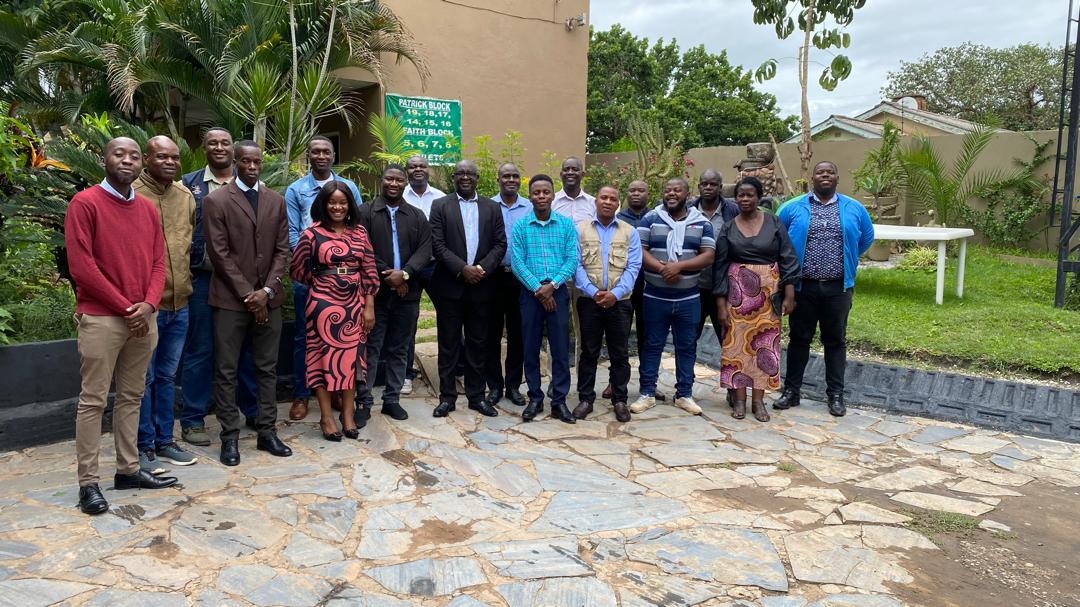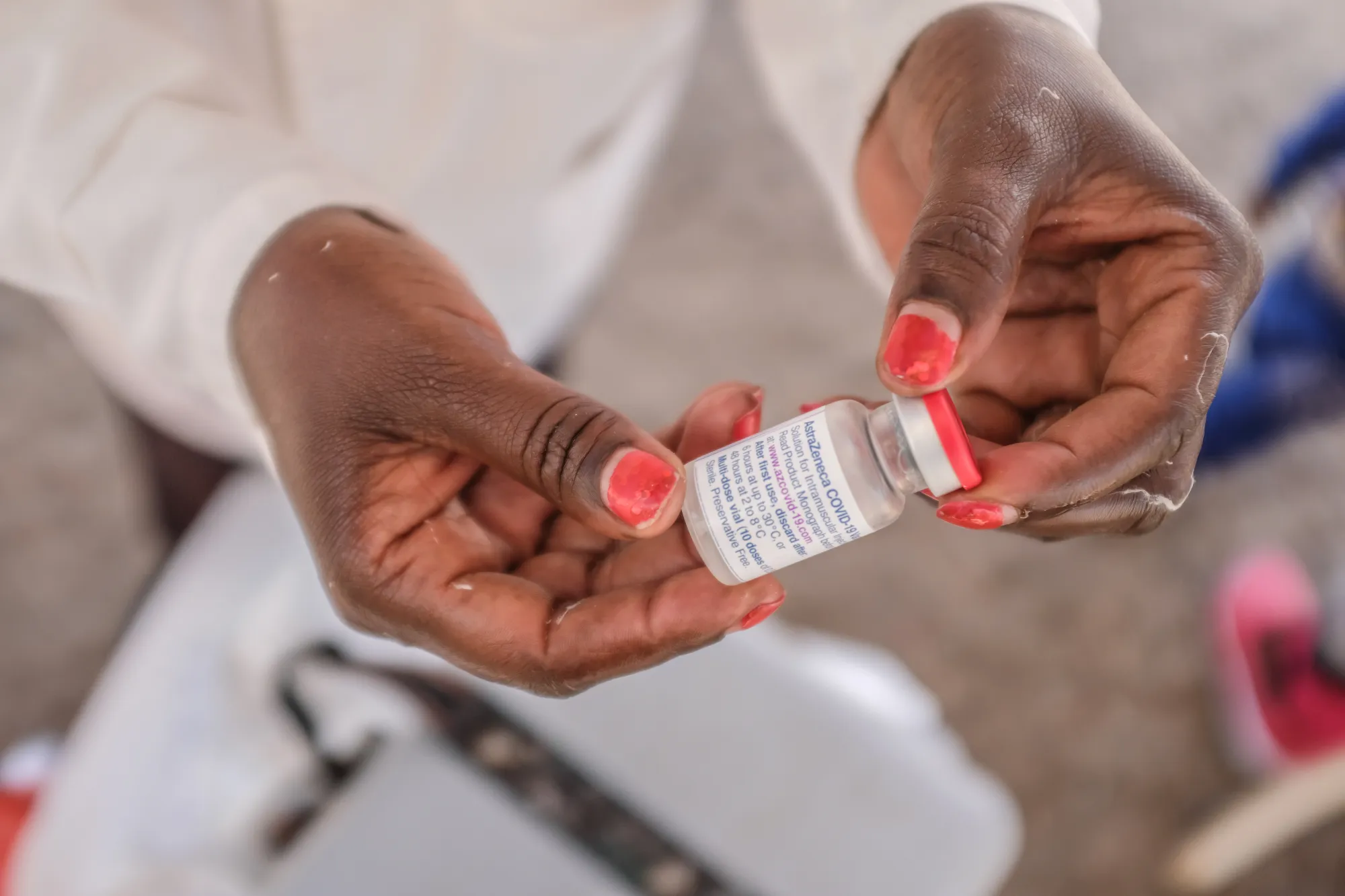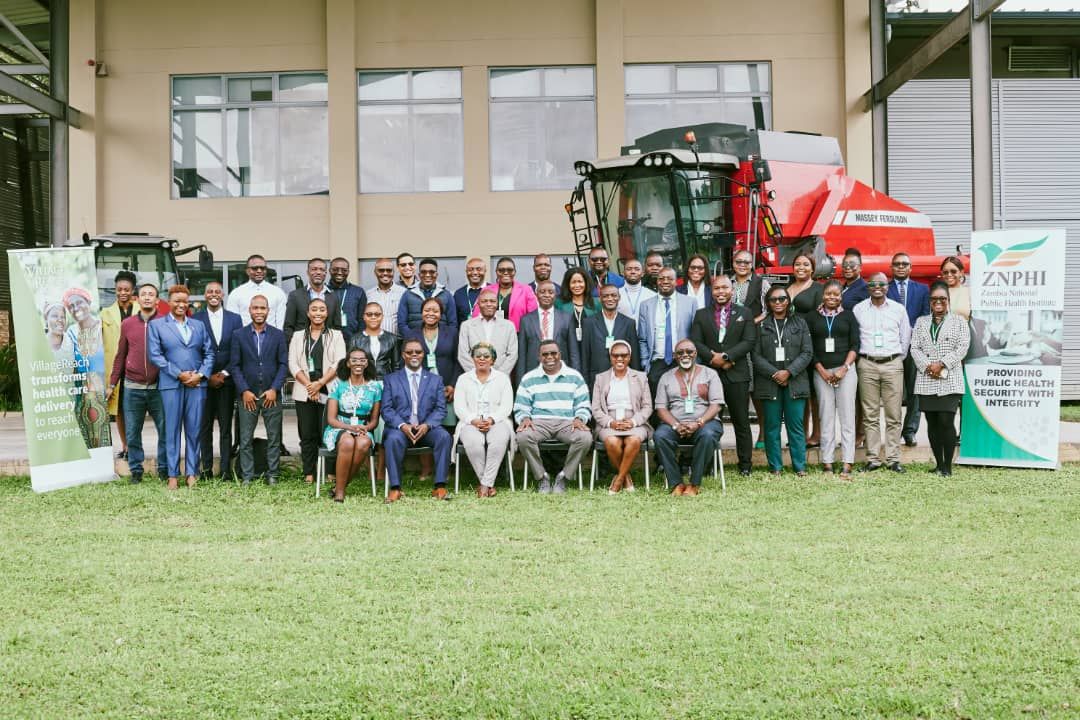Lusaka (Wednesday 8th September, 2022)
Members of the press, country men and women,
The human coronavirus disease 2019 (COVID-19) was first reported in Wuhan, China, in 2019, and subsequently spread globally to become the fifth documented pandemic since the 1918 flu pandemic. As of today, nearly 3 years after COVID-19 was first identified, there has been more than 600 million confirmed cases and over 6.5 million lives lost to the disease globally.
Here in Zambia, we have not been spared. The first two cases were reported in individuals who had just returned from travelling abroad on 18th March 2020. Since then we have counted up to 333,150 confirmed cases out of 3,710,130 tests conducted in our country and, unfortunately lost 4,017 of our people; of these deaths 2,869 were deemed COVID-19 deaths while 1,148 may have been caused by other conditions in the presence of the SARS-CoV-2 virus.
Through this scourge, the government of Zambia made frantic efforts to mitigate against the disease following international recommendations. We introduced screening and testing at ports of entry in the country, at health facilities and also mass testing within the communities at the height of the epidemic. We invoked public health statutes that mandated wearing of masks in the public, and closed off most activities at the height of the epidemic.
Members of the press, country men and women,
A review of the COVID-19 situation at this time informs us of reduced incidence of disease with less number of cases, hospitalisation and related deaths. Zambia has experienced four distinct waves of COVID-19 cases Since March 2020. These waves have been characterised by a rapid increase in cases and mortalities.
The highest number of cases during the first wave were recorded in July-August 2020 with the positivity rate being 25.4%. By February 2021, a second wave occurred with a weekly test positivity of 15.3%. Then a deadly third wave followed with the highest numbers recorded in July 2021 and a positivity rate of 26%. This wave was the worst with regards to numbers of COVID-19 related cases, hospitalisation, severity of disease and deaths. It was attributed to the Delta variant. During this time, our health facilities were overwhelmed as we had limited bed spaces, limited health care workers and oxygen was in short supply. It was at this time when restrictions were at their highest. Our gallant healthcare workers had to take shifts spending up to six months in the COVID hospitals. These hospitals were turned into both residences for health care workers working in COVID centres as well as places of work. This was due to the fear of spreading the disease to their families, loved ones and the community at large. Unfortunately, we also lost many health care workers during this third wave.
In December, 2021 we were hit with the fourth COVID-19 wave, which was largely driven by the Omicron variant of the COVID-19 virus. The highest number of cases was recorded in January 2022 when the positivity rate rose to 32.3%. While this positivity is the highest so far, the rate of severe cases, admissions and deaths did not exceed those observed in both the second and third waves.
Zambia has done well in its response to the COVID-19 through an aggressive multisectoral strategy. Continuous high political will and support from partners has resulted in the mobilisation of significant resources to support the 7-pronged strategy. This strategy focused around logistics, human resource, surveillance, case management, laboratory capacity, risk communication, infection prevention and vaccination.
Members of the press, country men and women,
Zambia first introduced vaccinations against COVID-19 in April of 2021. During that time, we prioritized sections of our population to benefit from the vaccines due to shortage of supply globally. We started with vaccinating healthcare workers, elderly persons and those with conditions such as hypertension or high blood pressure, diabetes or sugar disease and other underlying conditions. These conditions would put one with COVID-19 at higher risk of dying from the disease.
We faced many challenges coping with the case load of patients while trying to vaccinate. The process was complicated further by social media myths and misconceptions that spread fears in our communities to deter people from accepting the vaccines. By October 2021, six months after vaccinations had begun, only 3.3% of the eligible population had been vaccinated. In recognition of the difficulties with this process, His Excellency the president of the republic Mr Hakainde Hichilema decided to relaunch the vaccination drive in order to boost our efforts. He called upon political, civic, traditional, religious and bussiness leaders to lead in the vaccination drive.
To date, and indeed against all the odds, we have fully vaccinated 5,785,436 of our eligible population translating to 54% coverage nationally. I must mention that several districts in our country have actually attained over the mark of 70% fully vaccinated coverage.
These districts have demonstrated quality leadership at all levels of our society. We are grateful for their great leadership and commitment. Congratulations and we sincerely thank you.
Members of the press, country men and women,
Indeed, we have faced a challenging time at both individual and country level and recognise the socio-economic disruption that accompanied the measures we employed to respond to the pandemic. The restrictions that were mounted although seemingly tough were necessitated by the prevailing burden of disease and threat of escalation if left uncontrolled. We have been gradually easing these restrictions guided by science and epidemiological evidence.
I am glad to note a steady decline in the number of new cases, admissions, severe cases requiring oxygen and deaths since January 2022 with the present transmission being low. The test positivity has dropped significantly remaining below 5%, in the last one month. This is an indication that the pandemic is under control.
Members of the press, country men and women,
With the current scientific evidence, I am pleased to now announce that government has now decided to lift restrictions in particular on 1) public gatherings 2) the need for physical distancing and 3) mandatory wearing of masks. However, those who wish to wear masks for health or other personal reasons may continue to do so. We also wish to strongly encourage wearing of masks in high risk places such as hospitals and clinics because these will always continue being high risk areas for communicable disease transmission.
Please take note that COVID-19 testing will now be restricted to those who 1) have symptoms suggestive of COVID-19, 2) admitted to various health facilities with symptoms and signs suggestive of COVID-19 and 3) intending to travel to countries that may require evidence of a negative COVID-19 test result.
Members of the press, country men and women,
In the last 24 hours, we recorded 26 new cases, out of 1,380 tests performed, giving a national positivity rate of 2%. The breakdown of cases is as follows: Central (2); Copperbelt (2); Eastern (6); Luapula (3); Lusaka (3); Muchinga (1); North-western (4); Southern (1) and Western (4). Northern province did not record any new cases.
Notably in the last 24 hours, there were no cases requiring admission and there were no COVID-related deaths. On the other hand, we discharged 10 patients, all from home-based management; there were no facility discharges. The number of active cases country-wide remains encouragingly low, with only 336 active cases currently countrywide, of whom 9 (3%) are currently admitted with four on oxygen and two classified as being in critical condition.
Members of the press, country men and women,
The Ministry of Health through the Zambia National Public Health Institute and other stakeholders of public health are tasked with the responsibility to safeguard the public health security of the country. This means they must maintain heightened surveillance and disease intelligence that would quickly detect and facilitate a prompt response to any change in the epidemiological picture.
While our fight against COVID-19 seems quite successful, our country remains threatened with other diseases both communicable and non-communicable. Zambia remains at risk of public health threats, emerging within and imported.
Whereas we recognise the importance of the whole continuum of care, we emphasise on prevention of disease and therefore engagement with our communities to provide health education remains at the top of the agenda.
We recognize the high prevalence of Malaria, TB, hypertension, diabetes, cancers and the threat of re-emergence of measles and other infections. Use bed-nets and allow for the authorities to spray your homes in order to avoid Malaria and other diseases that could be spread by mosquitoes such as yellow fever and dengue. Seek medical attention when unwell so we diagnose and treat your condition timely. We all need to play a part in preventing these ailments.
Government, under the steadfast leadership of the President His Excellency Mr Hakainde has placed health security as a topical area of focus. Our health facilities are being capacitated with financial, commodity and human resource in order to manage the burden of disease even at community level. We are happy with the progress so far made.
I thank you for your time and attention. Have a healthy, safe and productive week ahead. God bless you all.
Hon. Sylvia Masebo, MP
Minister of Health








